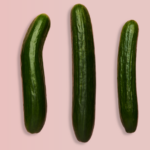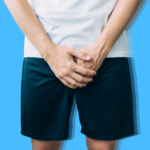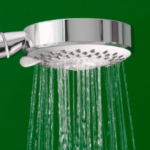Medically reviewed by
What is molluscum contagiosum?
Molluscum contagiosum is a skin condition caused by the molluscum contagiosum virus, which usually results in a collection of up to 30 small (2-5 mm) dome-shaped bumps on the skin. The bumps can be pale white or have a yellow or pink colour and have a ‘dimple’ or ‘pit’ in the middle.
In people with poor immune function (e.g. on immunotherapy or have lupus, HIV infection or cancer), there might be many more spots spread widely on the body, or the spots can join up to form very large lesions.
Molluscum contagiosum affects about 1 in 50 Australians. Infection of the skin of and around the genitals is most common in young, sexually active people.
Molluscum contagiosum is among the top 50 causes of disease worldwide, affecting over 122 million people annually.
Symptoms of molluscum contagiosum
Molluscum contagiosum typically results in spots on the face, neck, body and arms of children, as a result of direct contact.
In adults, molluscum contagiosum usually occurs on the genitals and surrounding areas following skin-to-skin contact during sex. The spots are usually painless but can be itchy.
Causes of molluscum contagiosum
The molluscum contagiosum virus is transmitted between people through direct contact or transfer from shared towels or other items used while bathing or swimming.
Scratching the lesions can infect nearby skin, causing the bumps to spread.
Diagnosis of molluscum contagiosum
Your doctor will usually diagnose molluscum contagiosum based on how the spots look and your answers to their questions.
Subscribe to our newsletter

Treatment of molluscum contagiosum
Molluscum contagiosum will go away on its own, but it takes about 6-12 months.
Molluscum contagiosum spots can be frozen, ‘burned’ or cut off by your doctor, but these treatments are painful and spots can reappear, requiring more than one treatment.
There are treatments you can apply directly to the spots (e.g. hydrogen peroxide, iodine, tea tree oil, imiquimod cream), but there isn’t good evidence they are effective.
Health effects of molluscum contagiosum
While you have molluscum contagiosum, you need to prevent passing it on to other people and spreading it to other parts of your body. This means you should keep the spots covered and not share towels or other items that contact the affected skin.
Using condoms during sexual contact doesn’t prevent the spread of molluscum contagiosum.
An immune reaction to molluscum contagiosum can lead to redness around the spots and the spots themselves becoming scaly. This condition, called molluscum dermatitis, leads to the spots going away.
What to do about molluscum contagiosum
If you notice any spots or lumps on your genitals, see your doctor so they can make an accurate diagnosis and rule out anything serious.
It’s a good idea to get checked for other sexually transmitted diseases if you have molluscum contagiosum on or around your genitals.













